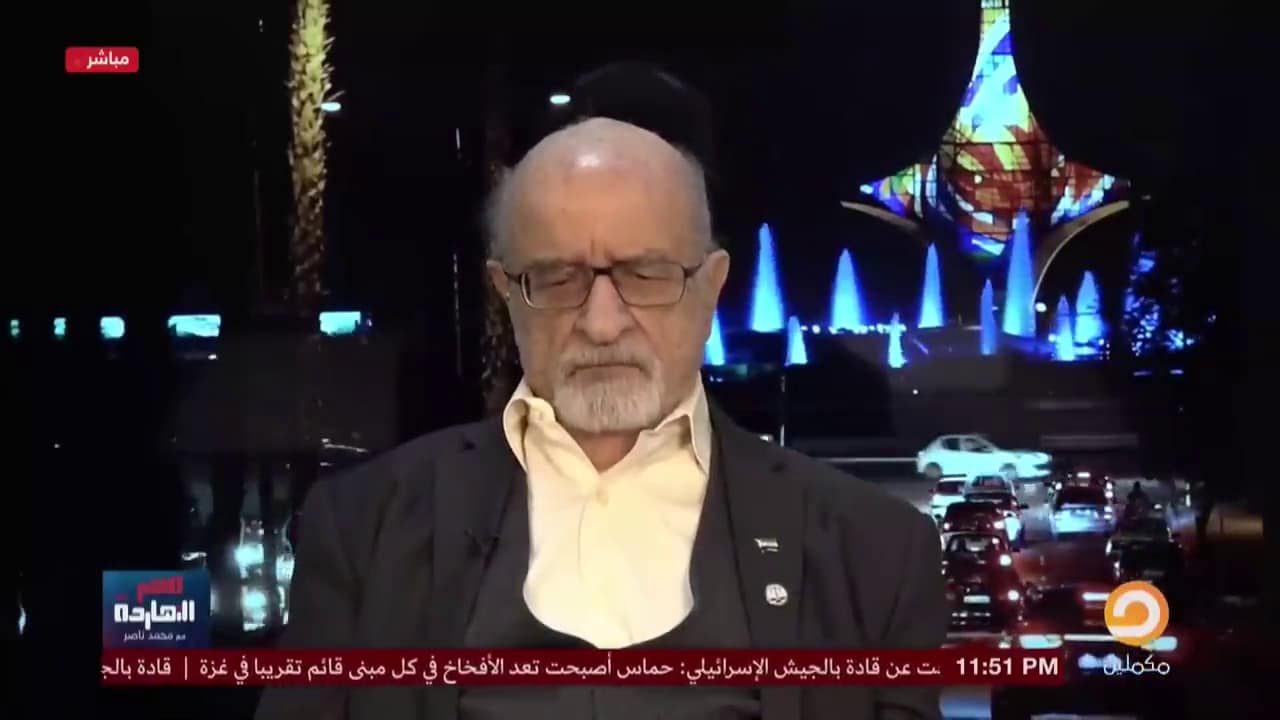
During a December 5, 2018 class that was streamed live on the Hadith Disciple YouTube channel, New York cleric "Mufti" Muhammad Ibn Muneer said that while there are different types of martyrs in Islam, one should not confuse any of them with the martyr who was killed in battle, who holds the highest status of martyrdom. He warned the audience not to treat lesser forms of Jihad, such as seeking knowledge and giving da'wa, as if they are equal to fighting for the sake of Allah. Ibn Muneer said that when a Muslim makes a comment about Christians or Jews, such as saying that the Jews have earned Allah's wrath, he may face repercussions such as being called an extremist or terrorist. He also said that trying to remove Jihad from the Quran and the Sunnah is like "removing sweetness from honey." He added: "Your feelings have no value [or] worth in light of the Quran and Sunnah. If you don't believe and understand that, then maybe Islam is not the religion for you." The class was held at Masjid Ahlis-Sunnah Wal-Jama'ah in Queens, New York. Ibn Munner, who was born in Philadelphia and whose Hadith Disciple YouTube channel has over 10,000 subscribers, recently went on a speaking tour at several mosques in the United Kingdom. During the tour he appeared on the "Freshly Grounded" podcast, which also has over 10,000 YouTube subscribers.
Following are excerpts:
Mufti Muhammad Ibn Muneer: Now, the question is what is meant by a "martyr"? [Is it] the martyr who dies from defending himself? [Is it] the martyr who dies from being burnt alive? The martyr who dies from being drowned? [Is it] the martyr who, as we mentioned in the sermon, who was killed by his stomach, his belly, or his insides?
[…]
Does this hadith, or the hadith about the martyr, because obviously the book of Islamic jurisprudence is based off of the hadiths… Does it apply [to these types of martyrs]? We say: No! Even though they are called "martyr" or "martyrs" – they are not of the same level as the martyr of the battle – the one who died on the battlefield. [Does] everyone understand this? It is very important to understand and not to mix these things up. The one who dies on the battlefield is of the prime highest level. Even though the others are called "martyr," they are not on his level of "martyr-ism," like he is. This goes to show you the virtue of Jihad for the sake of Allah. Not like those who try to make it like everything else, right? "This is Jihad, too, and seeking knowledge is Jihad, too, and giving da'wa is Jihad, too, and spending..." [These things are] a type of Jihad, but do not try to make that [the same as] qital – fighting. There is a difference between the two, and unfortunately there are many of us who do this. May Allah help us and protect us all. Obviously, the consequences and the repercussions, et cetera… Being called an extremist and a terrorist… The list goes on and on… The problems that will come from you saying certain things.
[…]
You make a statement or a comment about this, about that, about the Christians, about the Jews… What do they do? Huh? They get a problem. "We have to edit the video, Sheikh. We have to make the video private, Sheikh, because you mentioned that the Jews are those who earned Allah's wrath. You said that the Jews are those who earned Allah's wrath and they are jealous – we can't publish the video." What is this? And what's next? The next thing that bothers them, or irritates them, or is politically incorrect, we take that out, we don't mention that, and we don't talk about… What is this? When does it stop, the neutering of the Muslim, spading his courage? When does it stop?
[…]
Trying to take Jihad from the Quran and the Sunnah is [like] trying to take sweetness out of honey.
[…]
It is not illegal to have a gun and it is not illegal to have security. [If] someone tries to burn our house down, or blow up our mosque, or rape one of our women… We are going to defend ourselves.
[…]
I am sorry if I made a problem for your da'wa center of you [Islamic] center, but the truth is… I am not apologizing for that.
[…]
You never have to apologize if you speak the truth. So if you give factual information from the Quran and the Sunnah, there is no clarification that you have to make. There is no… "What's your statement on Facebook or Twitter?" I don't have no statement. I am not talking about one group or one person – does everyone understand this? Whether it is a college, whether it is Canada, whether it is the UK, wherever it is. There is no apologizing for the truth.
[…]
[People say:] "You can't say that there is slavery in Islam. You can't say that a woman can be a concubine in Islam. You can't say that! What about this woman that was raped, and this woman…" What does that have to do with the Quran and the Sunnah? Your feelings have no value, no worth, in light of the Quran and Sunnah. If you don't believe and understand that, then maybe Islam is not the religion for you.













